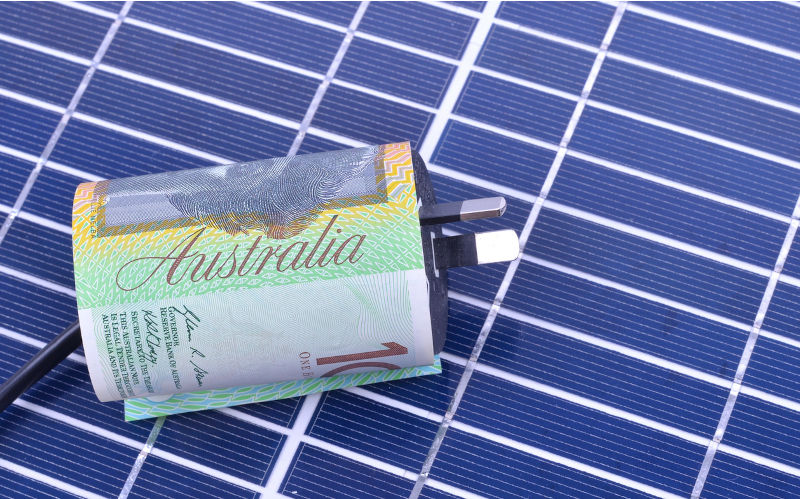'Too cheap to contain and too big to ignore': The electrotech revolution that will sweep away fossil fuels
September 22, 2025
A new report published this week has highlighted the profound disruption and transformation of the global energy system — driven by the uptake of low-cost, highly efficiency “electrotech” — solar and wind, electric vehicles and heat pumps, batteries and digitalisation.
The report, from the UK-based think-tank Ember, says these new technologies are thrice as efficient as fossil fuels, are capable of displacing about 70% of fossil fuel imports, and will continue to see their costs fall by about 20% every time deployment doubles.
Most of all, the new report, The Electrotech Revolution, flags a rethink about the way the world views the global energy system, and draws a parallel with the IT revolution that preceded it.
One of the most important of these — and often the most ignored — is the stunning efficiency of these new technologies. Wind and solar are two to three times more efficient, EVs up to four times more efficient, and heat pumps the same.
The report also highlights the fact that these manufactured technologies “borrow” Earth’s resources — like solar and wind — rather than “consuming” them like the burning coal, oil and gas.
“The magnetic centre is the electron,” says Kingsmill Bond, one of three authors of the report. “We are revolutionising how we generate, use, and shift electrons.
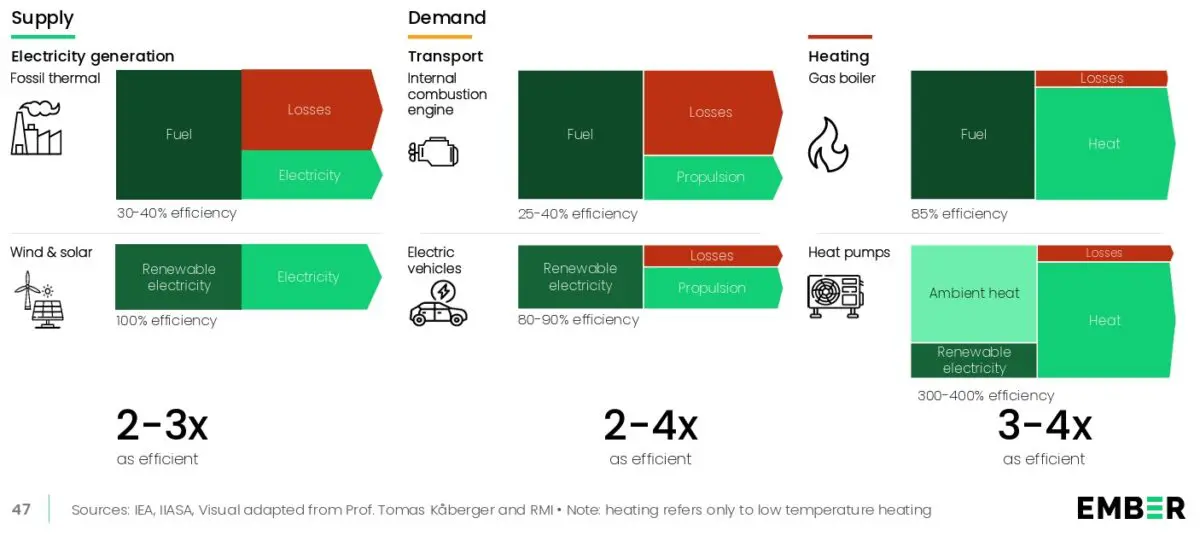
“Solar and wind are conquering electricity supply. EVs, heat pumps, and AI are electrifying major new uses. Batteries and digitalisation are connecting supply and demand.
The report is presented mostly as a “slidedeck”, and visualises these conclusions in more than a hundred graphs, maps, and infographics. It is therefore worthwhile viewing the report in its entirety, but there are a number of conclusions worth highlighting here.
Firstly, Ember proposes an alternative way to view the conversation on energy, distinct from the traditional fossil fuel-centric view which espouses slow change, business as usual, the climate view which is focused on emissions and policy targets. Instead, it focuses on the “electrotech” view that focuses on growth and innovation.
This third way is backed by three groups of technologies which Ember believes are revolutionising the global energy sector — solar and wind, battery storage and high voltage transmission, and EVs and heat pumps — new ways to generate electricity, new ways to store and transport it, and new ways to use it.
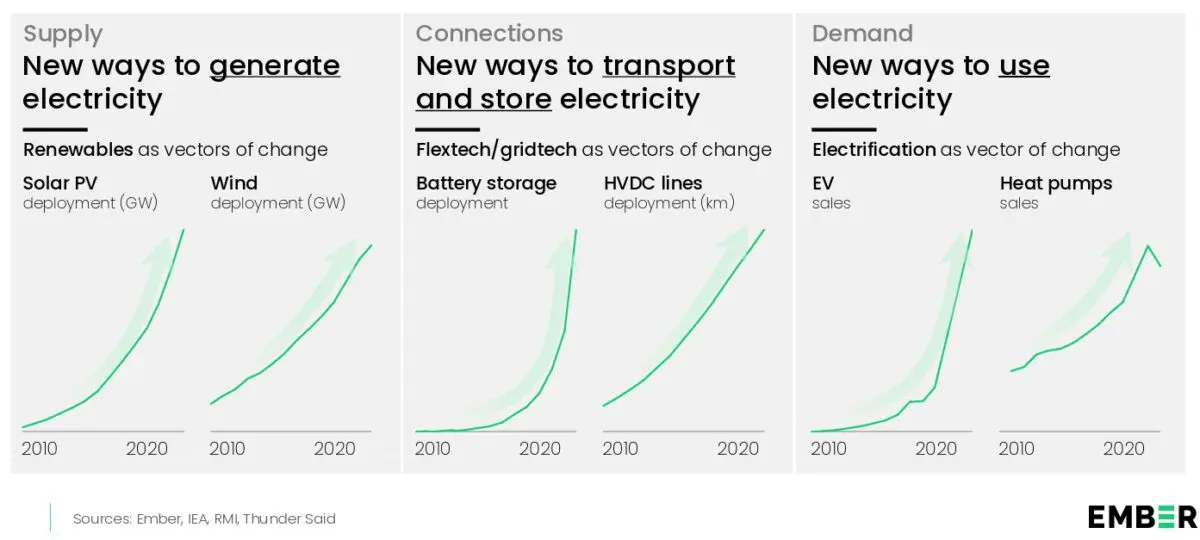
These technologies are not new, but all have undergone decades of evolution. It argues that it is made of the same components as digital tech, and inherits its momentum and will ultimately replace fossil fuels, power emerging economies, and see a surge in deployment around the globe.
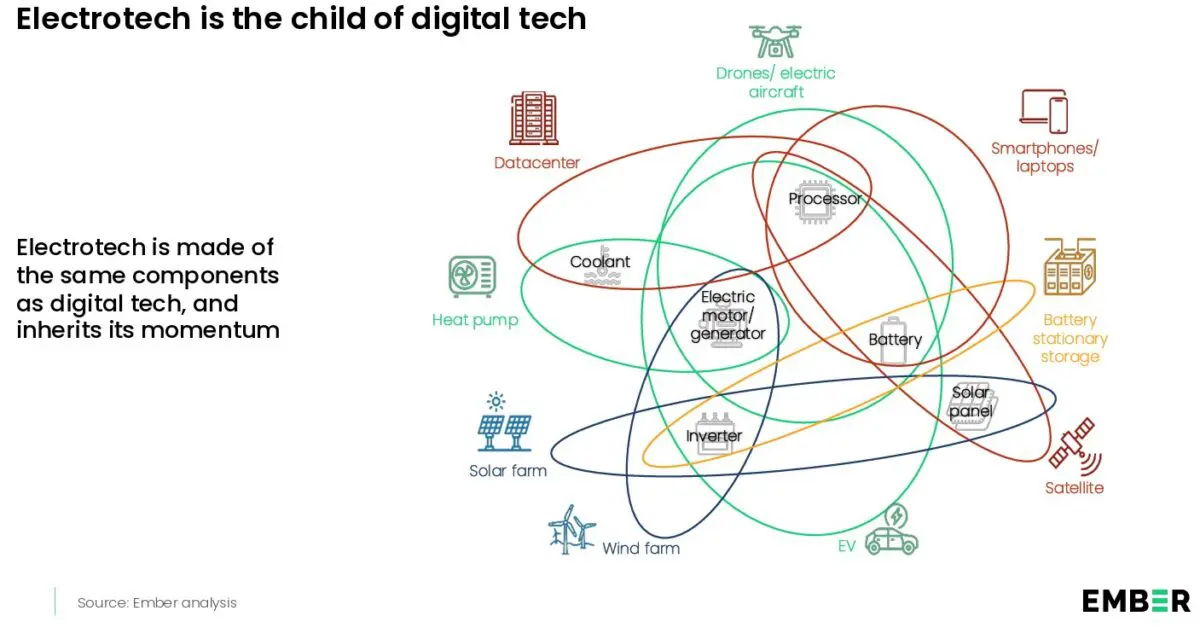
“A solar panel or an EV is closer to a laptop or smartphone than to an oil barrel or a steam turbine; products of chips, advanced materials, precision manufacturing, and global high-tech supply chains,” says co-author Daan Walter, a Principal at Ember.
“The same engine that drove the rise of smartphones and laptops now powers electrotech, built in the same Chinese factories, led by people with IT roots, and using the same manufacturing processes.
“It’s an industrial engine designed to disrupt the world: it did this for information before, and now it is doing it for energy.”
It is unsurprising, therefore, that electrotech investment has already begun outpacing investment in fossil fuels.
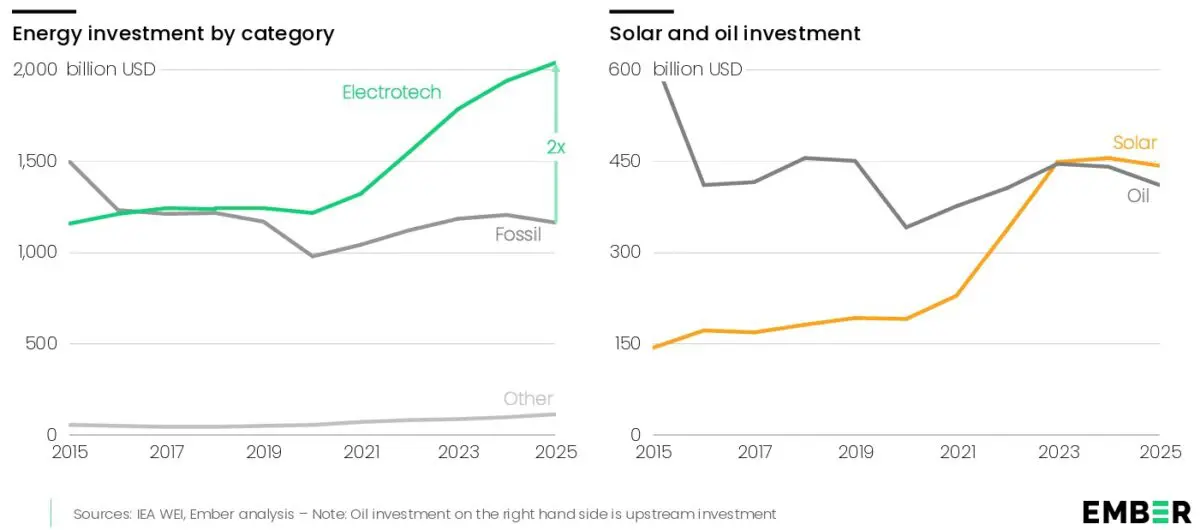
And, Ember says, electrotech is also capable of displacing about 70% of fossil fuel imports.
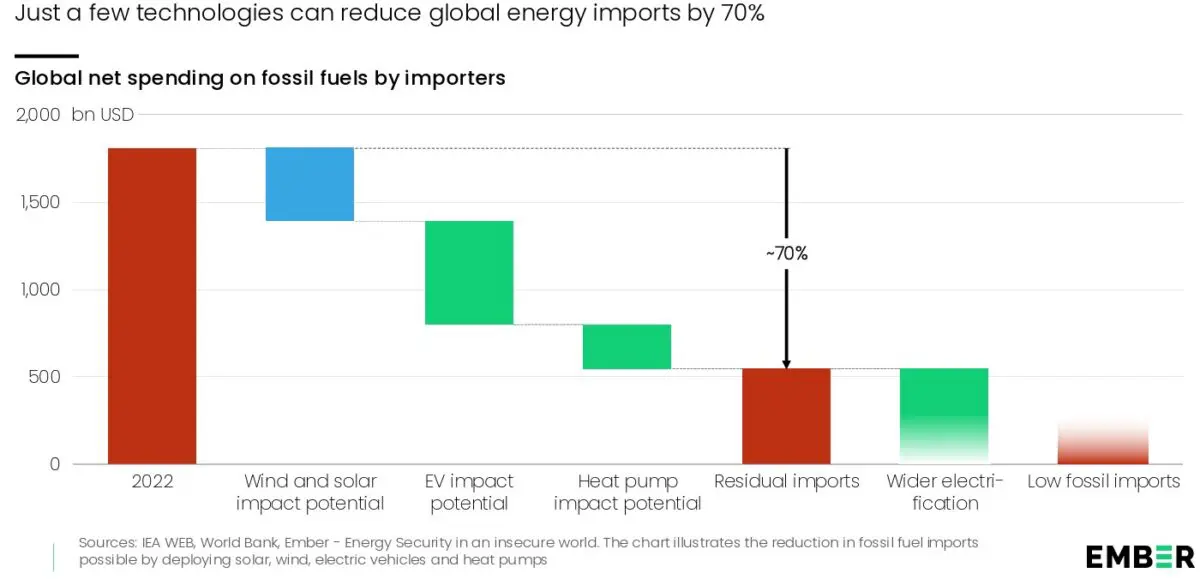
The costs of electrotech have also been falling for decades on established learning curves of about 20% for every doubling in deployment. Solar has fallen by 99.6%, wind installation costs by 80% and battery cell prices by 99% over recent decades.
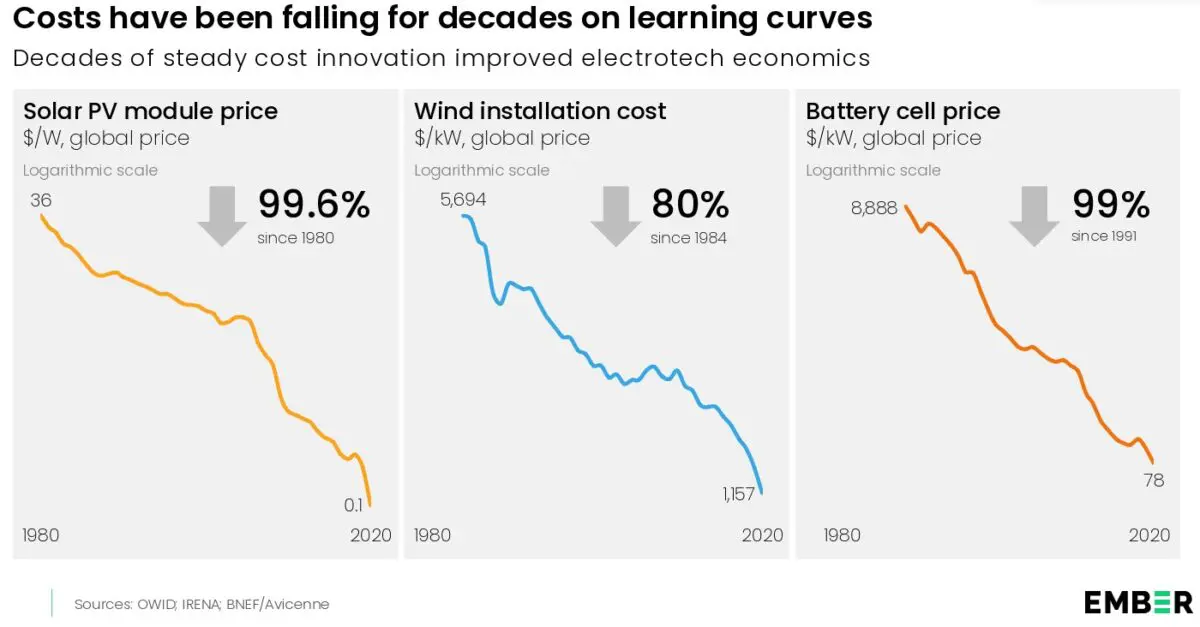
Unsurprisingly, then, electrotech is now challenging fossil fuels on cost.
Despite this, over 50 countries import more than half of their primary energy use as fossil fuels, highlighting the ongoing dependency on fossil imports.
But the potential for renewable energy generation is huge, 100-times that of fossil fuels, and available enough for every country to be self-sufficient.
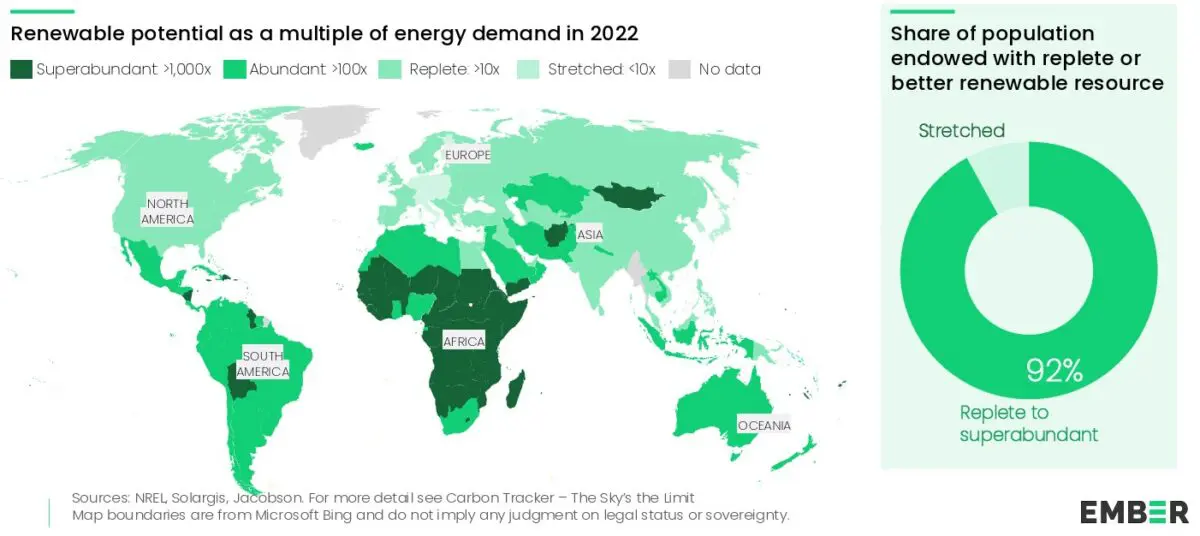
China, of course, plays a dominant role, and its deployment across renewables and the wider electrification of its economy is moving at “lighting speed”, according to Ember.
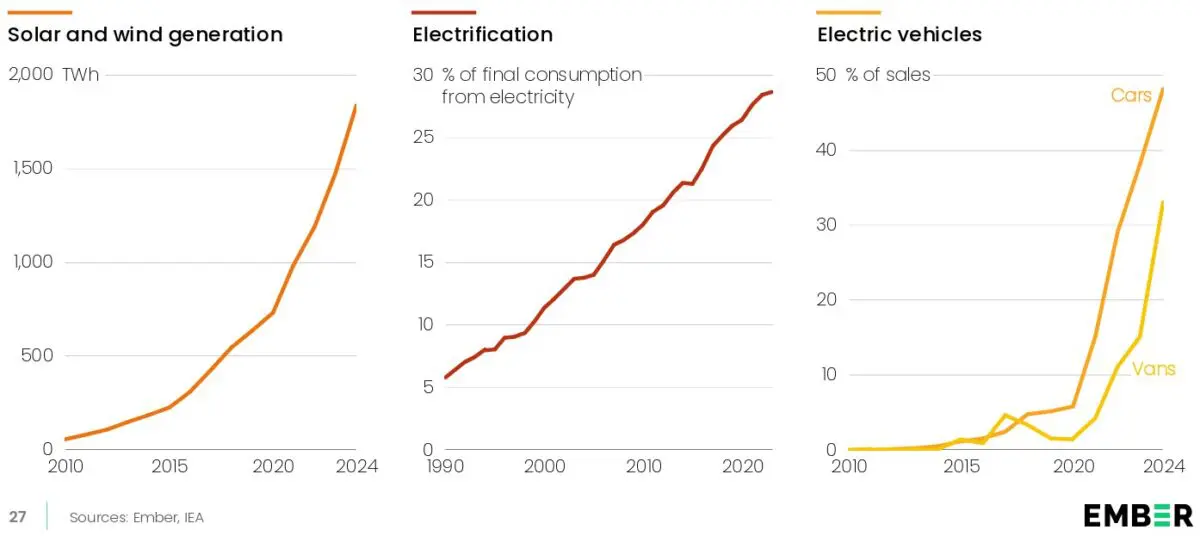
And while China has been the major driver of fossil fuel demand since 2018, fossil fuel demand is nevertheless peaking in China – having stopped growing in final fossil demand in 2014 and for fossil electricity in the first half of 2025.
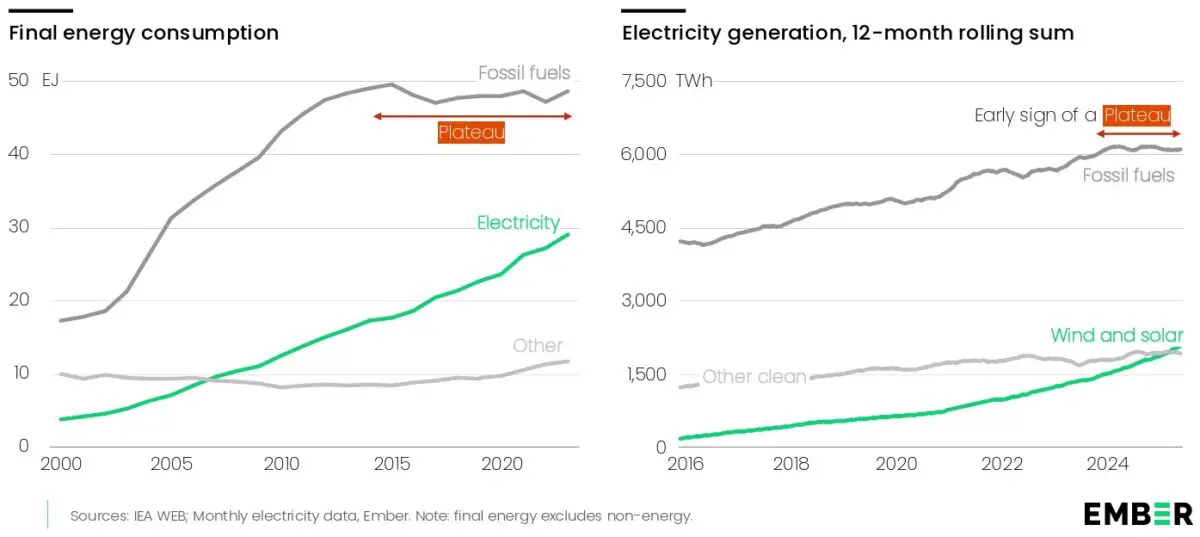
“China is becoming the world’s first electrostate – a nation that derives strategic leverage from its leadership across renewables and electrification, manufacturing and invention, domestic deployment and global exports,” said Sam Butler-Sloss, manager at Ember and another co-author.
“China isn’t merely manufacturing electrotech hardware; it is manufacturing an energy future in which it holds a strong position. For nations that wish to compete, the stakes are high and the clock is ticking.”
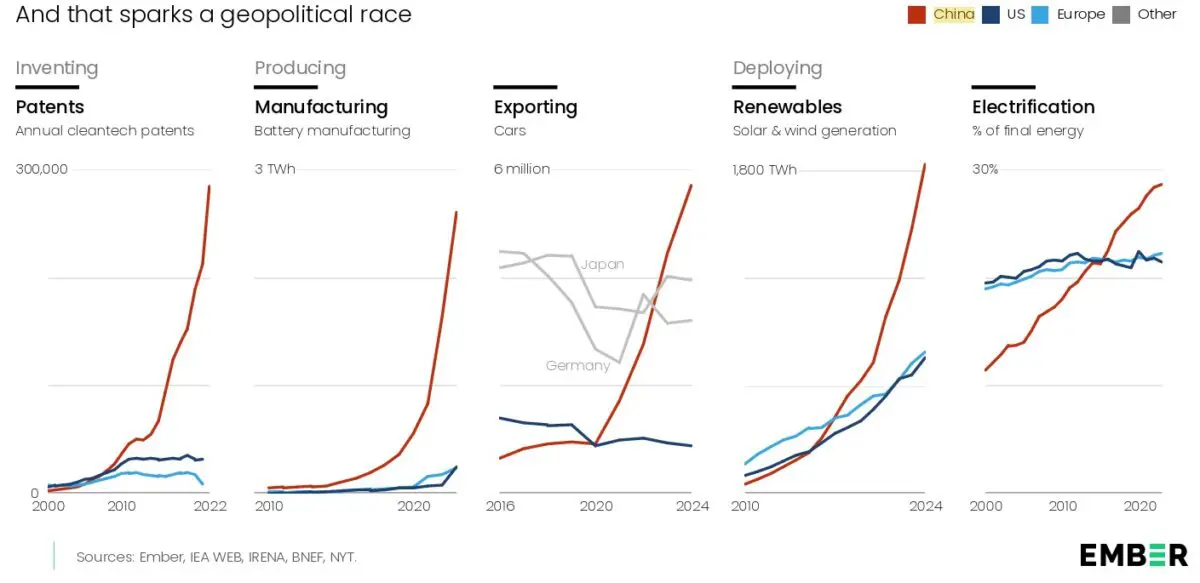
This should be serving as a warning to countries around the world, who will otherwise find themselves competing with China at home, as well as abroad.
In the end, the faster that electrotech grows around the globe, the faster that global emissions will fall – a direct one-to-one consequence of the Electrotech Revolution.
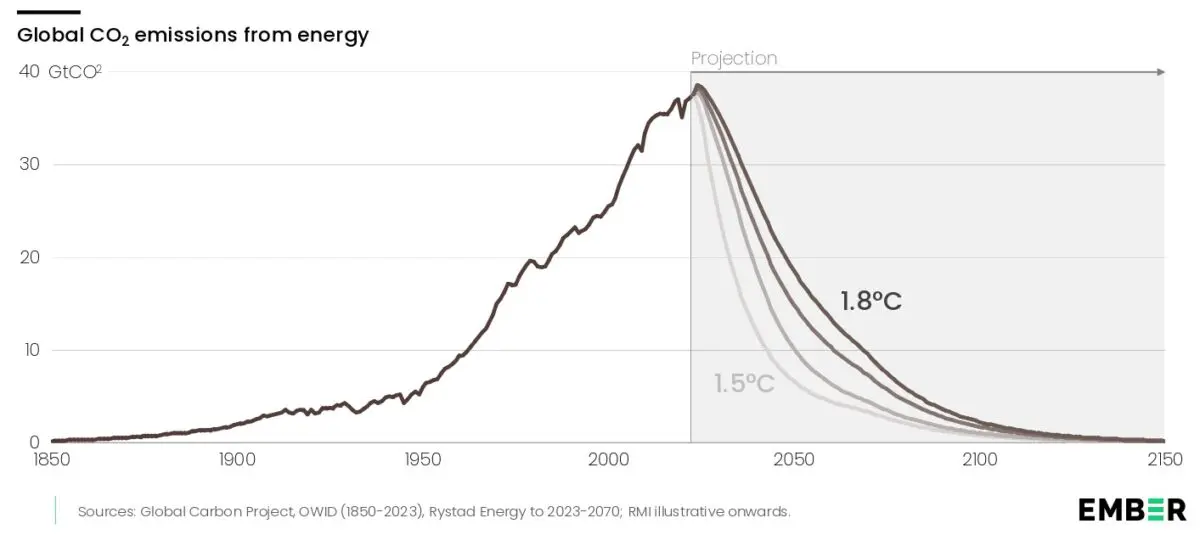
Ember concludes by declaring that the electrotech revolution is “bigger than energy” and that, “As the marginal cost of electricity falls towards zero, energy abundance will unleash new waves of growth, industrial competitiveness, and digital innovation.
“Emerging markets stand to benefit most; petrostates face decline; and new electrostates will emerge.
“Countries that want to reap the benefits of the electrotech revolution need to overcome fossil fuel resistance and get on with profound change. This means reducing the price of electricity, electrifying end uses and experimenting with policy solutions.”
Republished from Renew Economy, 19 September 2025
The views expressed in this article may or may not reflect those of Pearls and Irritations.
